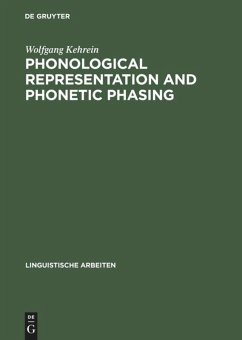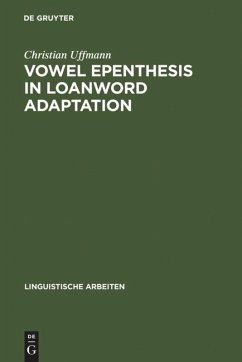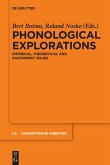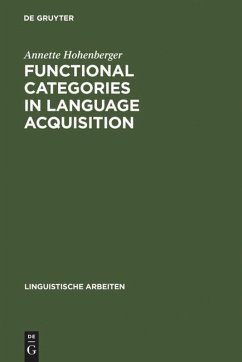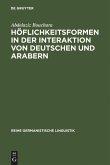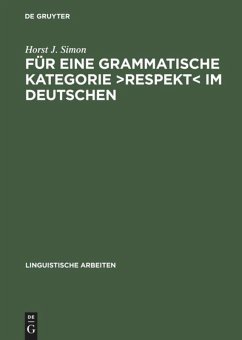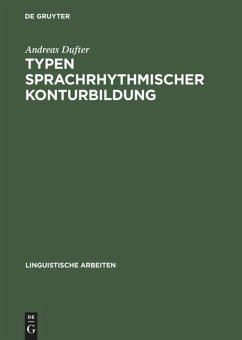This monograph contains two detailed case studies dealing with the phonetics and phonology of affricates and laryngeals. Based on a survey of 281 languages it states a number of universal generalizations which go counter to common assumptions in the phonological and phonetic literature. Most importantly, (1) a phonological concept >affricate< does not exist at all. Affricates are exclusively stops for matters of phonological contrasts and natural classes, but they are no contour segments composed of [stop] and [continuant]. (2) Laryngeal features are properties of the prosodic level of onset, nucleus, and coda, but not of individual segments. Again, this is shown to hold for contrasts and phonology proper (assimilation, neutralization, 'metathesis' etc.).
Based on the empirical findings the book addresses a number of theoretical issues as, e.g., the interaction of phonetics and phonology, or questions of phonological representation. It is claimed that phonetics fulfills important functions with regard to phonology: 'affrication' and laryngeal phasings (e.g. pre- vs. postaspiration) are presented as purely phonetic strategies which serve to make phonological specifications acoustically more salient. Finally, two revisions to current models of feature theory are proposed, both of which lead to a leaner structure of phonological segments: first, stricture contours are eliminated from phonological representation; second, the 'Laryngeal Node' is attached directly to onsets, nuclei, and codas.
Die Monographie enthält zwei Einzelstudien zur Phonologie und Phonetik von Affrikaten und Laryngalen aus insgesamt 281 Sprachen. Die empirischen Ergebnisse widerlegen eine Reihe gängiger Lehrmeinungen, z.B.: (1) Affrikaten sind phonologisch ausschließlich Plosive, (2) Laryngale sind Eigenschaften prosodischer Domänen (Anlaut, Nukleus, Koda), (3) Phonetische Strategien (Affrikatisierung, laryngale Phasierung) dienen der akustischen Verstärkung phonologischer Kontraste. Auf theoretischer Ebene werden Fragen der phonologischen Repräsentation (Merkmalskonturen, prososodische Lizensierung etc.) sowie der Schnittstelle von Phonologie und Phonetik diskutiert.
Hinweis: Dieser Artikel kann nur an eine deutsche Lieferadresse ausgeliefert werden.
Based on the empirical findings the book addresses a number of theoretical issues as, e.g., the interaction of phonetics and phonology, or questions of phonological representation. It is claimed that phonetics fulfills important functions with regard to phonology: 'affrication' and laryngeal phasings (e.g. pre- vs. postaspiration) are presented as purely phonetic strategies which serve to make phonological specifications acoustically more salient. Finally, two revisions to current models of feature theory are proposed, both of which lead to a leaner structure of phonological segments: first, stricture contours are eliminated from phonological representation; second, the 'Laryngeal Node' is attached directly to onsets, nuclei, and codas.
Die Monographie enthält zwei Einzelstudien zur Phonologie und Phonetik von Affrikaten und Laryngalen aus insgesamt 281 Sprachen. Die empirischen Ergebnisse widerlegen eine Reihe gängiger Lehrmeinungen, z.B.: (1) Affrikaten sind phonologisch ausschließlich Plosive, (2) Laryngale sind Eigenschaften prosodischer Domänen (Anlaut, Nukleus, Koda), (3) Phonetische Strategien (Affrikatisierung, laryngale Phasierung) dienen der akustischen Verstärkung phonologischer Kontraste. Auf theoretischer Ebene werden Fragen der phonologischen Repräsentation (Merkmalskonturen, prososodische Lizensierung etc.) sowie der Schnittstelle von Phonologie und Phonetik diskutiert.
Hinweis: Dieser Artikel kann nur an eine deutsche Lieferadresse ausgeliefert werden.

